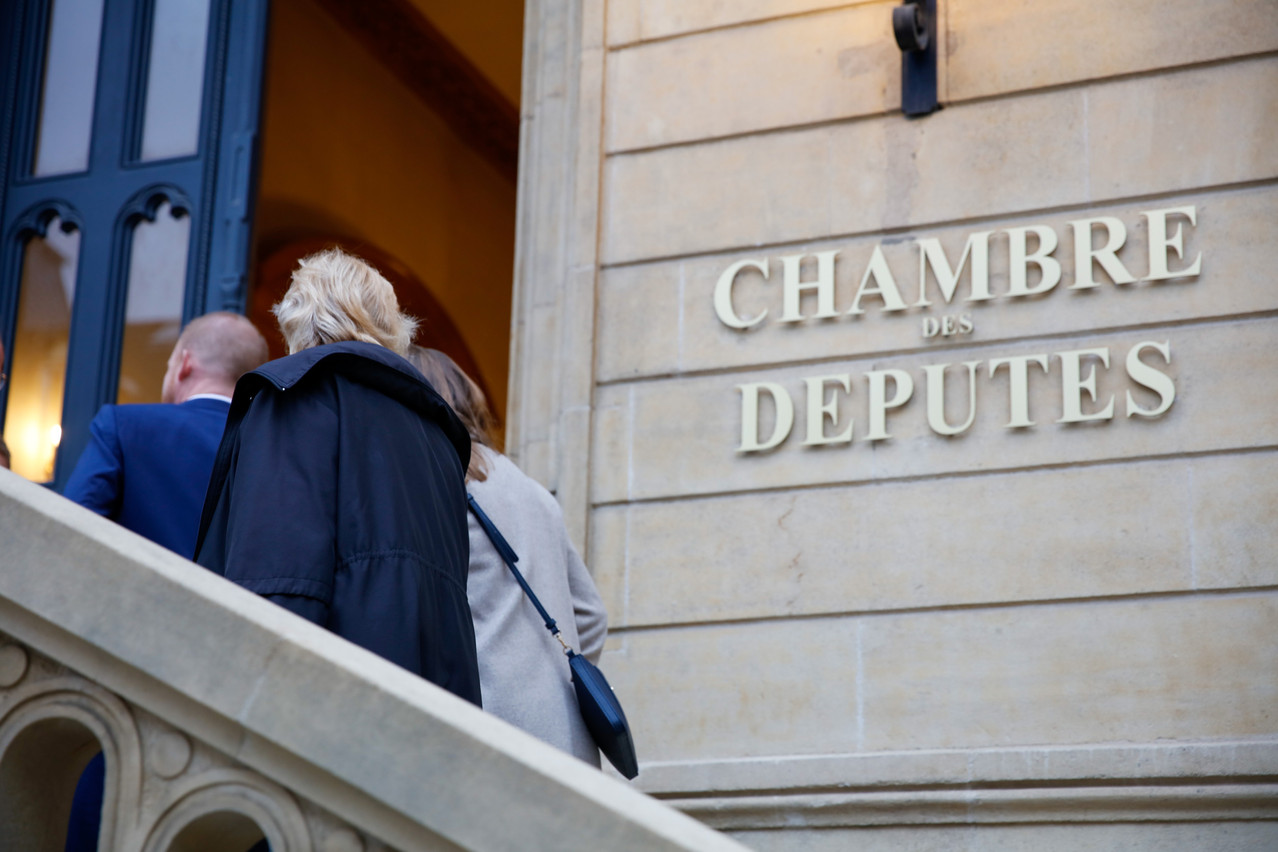The process to reform Luxembourg’s constitution has been ongoing for more than a decade. After a comprehensive new text was split up into four chapters, MPs passed the first chapter--on the justice system--last October and on Tuesday supported a second batch of updates.
“Historically, this is an important moment,” said Léon Gloden (CSV), describing the reform as a “historic step” as Luxembourgish is being enshrined as the grand duchy’s national language together with three additional national symbols--the red, white, blue flag, coat of arms and national anthem.
“Language is part of the country’s identity, its historic and cultural life,” said Simone Beissel (DP) during a debate in parliament. Luxembourg’s other two official languages--French and German--will be used according to the law under the new constitution.
The current version of the constitution states: “The law will regulate the use of the languages in administrative and judicial matters”, not naming any tongues in particular. A law from February 1984 established Luxembourgish as the national language and determined the use of other languages in official documents.
Mars Di Bartolomeo (LSAP) said the text doesn’t change Luxembourg’s multilingualism, “one of the great trump cards of this country.” Central elements of Luxembourg’s national identity are being given status, added Charles Margue (Déi Gréng), “without dividing or alienating our residents.”
Foreign workers’ rights group Asti had ahead of the vote that the new text essentially turns Luxembourg into a monolingual country. With lawmakers highlighting that the reform would adapt the constitution to the realities of Luxembourg life today, it had also questioned why other languages, such as Portuguese or English, weren’t being included.
“We know how many people come to Luxembourg from other countries every year,” said Sven Clement (Pirate Party), “and many of them don’t speak any of our administrative languages.”
Clement, too, said English could have been included as an administrative language. to raise English to an official language in the country in the past have failed. The Pirate Party speaker said the party doesn’t oppose elevating the status of Luxembourgish but said this must go hand-in-hand with a better offer of language courses and the opportunity to learn it.
Grand duke’s role
Following a 2015 referendum on foreigner voting rights, the new constitution continues to limit participation in legislative elections to Luxembourg nationals.
Myriam Cecchetti (Déi Lénk) said that the party would continue to support giving foreigners a bigger voice. The country’s laws--passed by the Chamber of Deputies--apply to all residents, Cecchetti said, but fewer than half of the country can elect its representatives. Luxembourg’s electorate of over-18s counts around 260,000 people, out of a population of 626,000, with Déi Lénk also in favour of lowering the voting age to 16.
Elsewhere, the role of the grand duke as head of state is being more clearly defined. For example, he only carries the title of commander-in-chief of the army but does not command the armed forces. He will no longer have the right to mint coins and the succession is being protected by the constitution where it was previously regulated by a contract of the ruling Nassau family.
State officials will no longer swear an oath on the grand duke when taking office and the grand duke no longer organises the composition of the government.
“It’s not a reform against the monarchy of this country,” said Gloden. Rather, Luxembourg’s institutions are being strengthened. Prime minister Xavier Bettel (DP) said that the monarchy is being protected from becoming embroiled in politics, with the head of state placed above party-political lines.
Also for the first time, Luxembourg’s statehood as a parliamentary democracy and constitutional democracy based on rule of law and human rights is being enshrined in the country’s highest laws.
European integration has been added to the constitution in a sign of “our connection to the European community,” said Di Bartolomeo, adding that this didn’t represent curbing Luxembourg’s sovereignty. “Today is a good day for our institutions, rule of law and our democracy,” said Margue.
Referendum push
Members of the right-wing ADR and left-wing Déi Lénk opposed the reform. The ADR has long pushed for a referendum on the changes. This had been promised when lawmakers were working on one comprehensive new text but was abandoned when the reform was broken up into smaller pieces.
Out of 60 seats in parliament, 49 lawmakers on Tuesday supported the document (DP, LSAP, Déi Gréng, CSV, Pirate Party), with four votes against the reform (ADR) and one abstention (Déi Lénk). Six members of parliament were absent with proxy voting not allowed.
A two thirds majority must support constitutional changes and lawmakers have to vote twice on the documents. In the three months between both votes, citizens can force a referendum if they manage to successfully collect from voters. Alternatively, a group of 16 MPs can officially petition for a referendum.
The ADR on Tuesday opened this initiative. When lawmakers voted on the chapter of justice reform, eight MPs--the opposition seats of the ADR, Déi Lénk and Pirate Party--supported the call for a public ballot.
